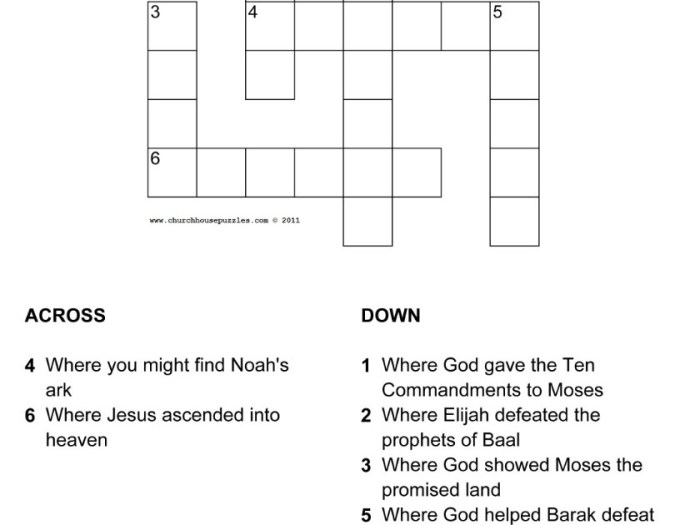Embarking on a linguistic journey through the Language of Biblical Times Crossword, we uncover the profound significance of the language employed in ancient scriptures, tracing its historical evolution and exploring its enduring impact on our understanding of the world.
Delving into the intricacies of biblical language, we decipher its unique grammatical structures, syntax, and vocabulary, unraveling the tapestry of metaphors, similes, and other literary devices that enrich its narrative.
Language of Biblical Times Crossword: Definition and Historical Context

The language of biblical times refers to the languages spoken and written during the period in which the Bible was composed. These languages played a crucial role in shaping the text and conveying its religious, cultural, and historical significance.
The biblical era spanned several centuries, from the early Bronze Age to the first century CE. During this time, various languages were spoken in the regions where the Bible was written. These included Hebrew, Aramaic, Greek, and Latin.
Key Characteristics of Biblical Language, Language of biblical times crossword
The language used in biblical texts exhibits unique characteristics that distinguish it from other ancient languages.
- Grammatical Structure:Biblical Hebrew and Greek follow distinct grammatical rules and syntax, including the use of verb tenses, noun declensions, and sentence structure.
- Literary Devices:Biblical language is rich in literary devices such as metaphors, similes, and parables, which convey deeper meanings and enhance the narrative.
- Cultural Context:The language reflects the cultural and historical context of the biblical writers, incorporating idioms, customs, and beliefs of the ancient Near East.
Crosswords and the Language of Biblical Times
Crossword puzzles related to biblical language have gained popularity as a way to test and enhance knowledge of biblical terms and phrases.
- Clues:Crossword clues often require solvers to identify specific words or phrases from biblical texts, challenging their understanding of vocabulary and context.
- Educational Value:Solving biblical language crosswords can serve as an educational tool, reinforcing knowledge of biblical terminology and deepening comprehension.
Modern Applications of Biblical Language
The language of biblical times continues to influence contemporary contexts in various ways:
- Literature and Art:Biblical language has inspired countless works of literature, art, and music, shaping the cultural landscape of Western civilization.
- Language Development:Biblical languages have influenced the development of modern languages, particularly English, contributing to its vocabulary and grammar.
- Religious Significance:For religious communities, biblical language remains a sacred and authoritative source of faith and spiritual guidance.
General Inquiries
What is the significance of biblical language?
Biblical language holds immense religious, historical, and literary significance, providing a window into the beliefs, practices, and worldview of ancient civilizations.
How has biblical language evolved over time?
Biblical language has undergone significant evolution, influenced by cultural interactions, conquests, and the emergence of new religious movements, resulting in a rich tapestry of dialects and variations.
What are the key characteristics of biblical language?
Biblical language is characterized by its vivid imagery, poetic devices, and unique grammatical structures, reflecting the cultural and religious context in which it was written.

